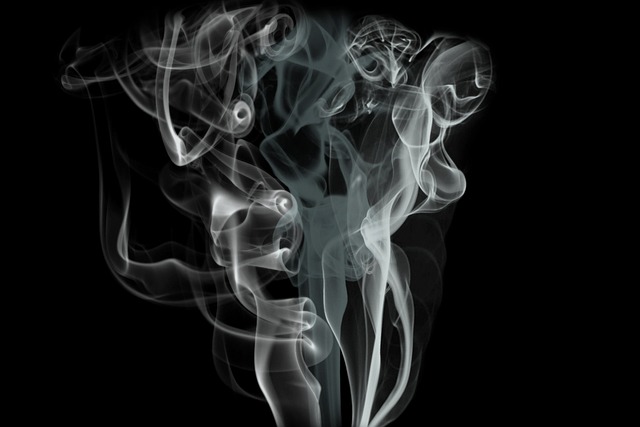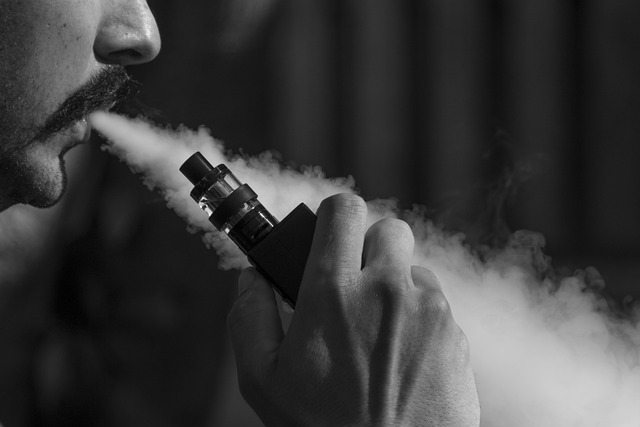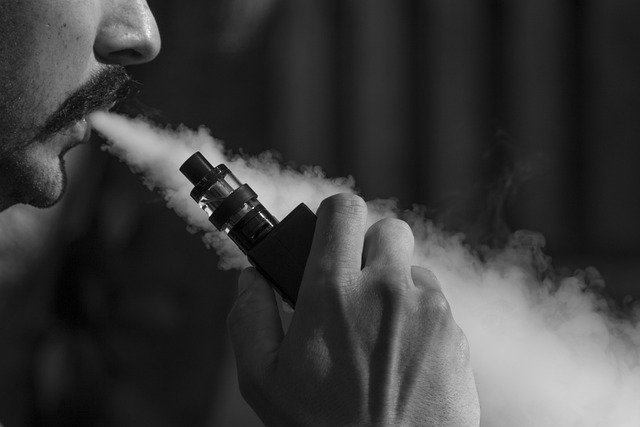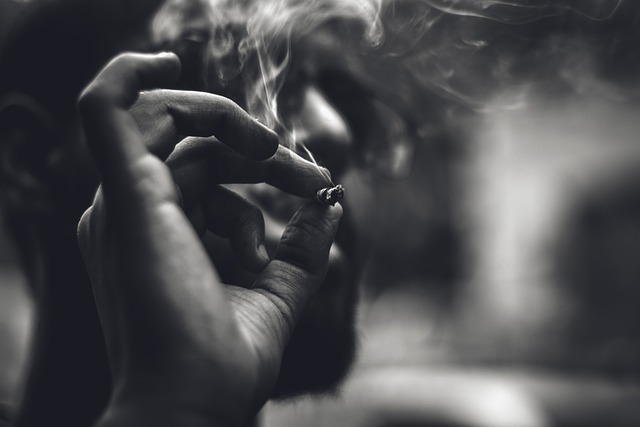Wisdom Teeth Extraction: Smoking Do’s and Don’ts
Wisdom teeth extraction can be an intimidating prospect for many, but understanding the do’s and don’ts surrounding smoking after the procedure can help alleviate some concerns. As experts in the field, we aim to provide you with confident, knowledgeable, and neutral advice to ensure a smooth recovery process. In this article, we will shed light on the important aspects of smoking post-extraction, equipping you with the necessary wisdom to make informed decisions and promote a successful healing journey.
1. Understanding Wisdom Teeth Extraction: A Comprehensive Guide
Wisdom teeth extraction is a common dental procedure that involves removing the third molars, also known as wisdom teeth, usually in late adolescence or early adulthood. These teeth often cause problems as they emerge, due to their size and position at the back of the mouth. Understanding the process of wisdom teeth extraction can help alleviate any concerns or anxieties you may have about the procedure.
During the extraction, the dentist or oral surgeon will first administer a local or general anesthesia to ensure you are comfortable and pain-free throughout the procedure. Next, an incision will be made in the gum tissue to access the tooth and bone. If the tooth is impacted, meaning it hasn’t fully erupted through the gum, some bone may need to be removed to expose the tooth. The tooth may be divided into smaller sections for easier removal. Once the tooth is extracted, the incision is stitched closed, and gauze is placed over the extraction site to control bleeding. The entire process typically takes about an hour, but the duration may vary depending on the complexity of the case.
- Wisdom teeth extraction is a common dental procedure.
- It is usually performed in late adolescence or early adulthood.
- The procedure involves removing the third molars, known as wisdom teeth.
- Wisdom teeth can cause problems due to their size and position at the back of the mouth.
- Anesthesia is used to ensure a pain-free experience during the extraction.
- An incision is made in the gum tissue to access the tooth and bone.
- Bone may need to be removed to expose an impacted tooth.
- The tooth may be divided into smaller sections for easier removal.
- The incision is stitched closed, and gauze is placed over the extraction site.
- The procedure usually takes about an hour, but it can vary depending on the case.

2. Smoking and Wisdom Teeth Extraction: Essential Do’s and Don’ts
- Do quit smoking before the extraction: It is highly recommended to quit smoking at least 24 hours before your wisdom teeth extraction procedure. Smoking can hinder the healing process and increase the risk of complications. By quitting smoking, you give your body a chance to heal properly and reduce the chances of developing dry socket, infection, or delayed healing.
- Don’t smoke immediately after the extraction: After the wisdom teeth removal, it is crucial to avoid smoking for a few days. Smoking can introduce harmful chemicals and bacteria into the extraction site, which can impede the healing process and increase the risk of infection. It is best to wait for at least 48 to 72 hours after the procedure before resuming smoking, or better yet, consider quitting altogether for a healthier recovery.
- Do maintain good oral hygiene: During the recovery period, it is important to keep your mouth clean to promote healing. Brush your teeth gently twice a day, using a soft-bristled toothbrush and non-alcoholic mouthwash. Be cautious around the extraction site to avoid irritation. Additionally, rinse your mouth with warm saltwater several times a day to reduce inflammation and prevent infection.
- Don’t use tobacco alternatives: While you may be tempted to switch to smokeless or chewing tobacco during the healing process, it is advisable to avoid all forms of tobacco. These alternatives still contain harmful substances that can impede healing and increase the risk of complications. It is best to refrain from any tobacco products until you have fully recovered from the wisdom teeth extraction.

3. Prioritizing Your Oral Health: The Importance of Following Guidelines
When it comes to maintaining good oral health, following guidelines is of utmost importance. These guidelines are designed to help you prioritize your oral health and prevent dental problems in the long run. By adhering to these recommendations, you can ensure the health and longevity of your teeth and gums.
One key guideline is to brush your teeth at least twice a day using a fluoride toothpaste. This helps remove plaque and bacteria that can lead to tooth decay and gum disease. Additionally, it is crucial to replace your toothbrush every three to four months or sooner if the bristles become frayed. Regular flossing is also essential to remove food particles and plaque from between your teeth. This helps prevent cavities and keeps your gums healthy. Remember to visit your dentist regularly for check-ups and professional cleanings. These visits allow for early detection of any oral health issues and can help maintain your dental health in the long term.

4. Navigating the Recovery Period: Expert Advice on Smoking after Extraction
After undergoing a tooth extraction, it is important to navigate the recovery period carefully, especially if you are a smoker. Smoking can significantly impede the healing process and increase the risk of complications. To ensure a smooth recovery and minimize any potential setbacks, follow these expert tips:
- Avoid smoking for at least 48 hours: It is crucial to refrain from smoking immediately after an extraction. The suction created while smoking can dislodge the blood clot that forms in the socket, leading to a painful condition called dry socket. Wait at least 48 hours before lighting up.
- Consider quitting smoking altogether: If you are a regular smoker, this may be an opportune time to consider quitting altogether. Smoking hampers blood circulation, which is vital for proper healing. By quitting, you not only improve your oral health but also enhance your overall well-being.
- Be mindful of second-hand smoke: Even if you are not actively smoking, exposure to second-hand smoke can still be harmful during the recovery period. Avoid spending time with smokers in enclosed spaces to minimize the risk of complications.
Remember, the recovery period after a tooth extraction is crucial for your oral health. By following these expert recommendations and making conscious choices, you can ensure a successful recovery and promote optimal healing.
5. Do’s and Don’ts of Smoking Post-Wisdom Teeth Extraction: Insights from Dental Professionals
After undergoing wisdom teeth extraction, it is crucial to follow the right guidelines to ensure proper healing and minimize the risk of complications. One important aspect to consider is smoking, as it can significantly impact the recovery process. Dental professionals strongly advise the following do’s and don’ts for individuals who smoke after wisdom teeth extraction:
- Do: Give yourself a break from smoking: It is highly recommended to abstain from smoking for at least 72 hours after the extraction. This timeframe allows for the initial healing process to take place and reduces the chances of developing a dry socket, a painful condition resulting from the blood clot dislodging.
- Do: Maintain good oral hygiene: During the recovery period, it is crucial to maintain excellent oral hygiene. Brush your teeth gently using a soft-bristled toothbrush, being careful around the extraction site. Rinse your mouth with warm saltwater after meals to help keep the area clean and minimize the risk of infection.
- Don’t: Smoke cigarettes, cigars, or use any tobacco products: Smoking, as well as using tobacco products, can delay the healing process, increase the risk of infection, and lead to a dry socket. It is essential to avoid any form of smoking or tobacco use during the recovery period.
By following these do’s and don’ts, individuals can promote a smoother recovery and minimize the potential complications associated with smoking after wisdom teeth extraction. It is always best to consult with your dental professional for personalized advice and further guidance based on your specific situation.

6. Supporting Healing and Preventing Complications: Best Practices for Smokers
Smoking can have a significant impact on the healing process and increase the risk of complications after surgery or injury. To support healing and prevent complications, it is crucial for smokers to adopt best practices. Here are some key recommendations:
- Quit smoking: The most effective way to support healing and prevent complications is to quit smoking altogether. Smoking cessation significantly reduces the risk of complications and allows the body to heal more effectively. Seek professional help, such as counseling or nicotine replacement therapy, to increase your chances of successfully quitting.
- Avoid secondhand smoke: Exposure to secondhand smoke can hinder the healing process and increase the likelihood of complications. Stay away from environments where smoking is prevalent, and ask family members and friends to refrain from smoking around you.
- Inform your healthcare provider: Make sure to inform your healthcare provider about your smoking habit. They can provide guidance, resources, and support tailored to your specific needs. Your healthcare provider may recommend certain medications or therapies to aid in smoking cessation.
Furthermore, it is essential to prioritize self-care during the healing process:
- Eat a balanced diet: Proper nutrition is crucial for healing. Consume a variety of fruits, vegetables, lean proteins, and whole grains to provide your body with essential nutrients.
- Stay hydrated: Drink plenty of water to promote optimal healing and prevent complications. Adequate hydration helps flush toxins from the body and supports cellular function.
- Follow post-operative instructions: Adhere to the guidelines provided by your healthcare provider, such as wound care instructions and medication schedules. These instructions are designed to optimize healing and minimize complications.
By implementing these best practices and prioritizing your health, you can support the healing process and reduce the risk of complications associated with smoking.
7. Making Informed Choices: How Smoking Affects the Recovery Process
1. Impact on Wound Healing: Smoking can significantly impair the recovery process by slowing down wound healing. Nicotine, a key component of cigarettes, narrows blood vessels and reduces blood flow to the wound site. This deprives the area of essential oxygen and nutrients necessary for tissue repair. As a result, smokers may experience delayed wound healing, increased risk of infection, and potentially, more noticeable scars. It is crucial to quit smoking before undergoing any surgical procedures to optimize the healing process.
2. Respiratory Complications: Smoking compromises lung function, making individuals more susceptible to respiratory complications during the recovery process. Cigarette smoke damages the cilia, tiny hair-like structures lining the airways that help remove mucus and debris from the lungs. When the cilia are impaired, mucus builds up, leading to a higher risk of lung infections such as pneumonia or bronchitis. Additionally, smoking weakens the immune system, reducing the body’s ability to fight off infections. Therefore, it is essential for individuals in recovery to abstain from smoking to minimize the chances of respiratory complications and promote a smoother healing journey.
Frequently Asked Questions
Q: Can I smoke after getting my wisdom teeth extracted?
A: It is strongly advised to avoid smoking after wisdom teeth extraction. Smoking can significantly impede the healing process and increase the risk of complications.
Q: Why is smoking harmful after wisdom teeth extraction?
A: Smoking introduces harmful chemicals and heat into your mouth, which can delay healing, cause dry socket, and increase the risk of infection. It can also lead to a decrease in blood flow, making it difficult for the surgical site to heal properly.
Q: How long should I wait before smoking after wisdom teeth extraction?
A: It is best to refrain from smoking for at least 72 hours, or until your oral surgeon gives you the green light. This timeframe allows for the initial stages of healing, reducing the risk of complications.
Q: What is dry socket, and why is it a concern?
A: Dry socket is a painful condition that occurs when the blood clot at the extraction site becomes dislodged or dissolves prematurely. Smoking after extraction can increase the chances of developing dry socket, which can lead to severe pain and delayed healing.
Q: Are there any alternatives to smoking while recovering from wisdom teeth extraction?
A: Absolutely! It is highly recommended to avoid smoking altogether during the healing period. However, if you’re craving nicotine, consider using nicotine patches, gum, or other tobacco-free alternatives to satisfy your urge without compromising your recovery.
Q: What other activities should I avoid after wisdom teeth extraction?
A: Besides smoking, it is important to avoid vigorous rinsing, spitting forcefully, using straws, or consuming hot and spicy foods in the initial days following the procedure. These activities can dislodge the blood clot and hinder the healing process.
Q: How can I promote a faster recovery after wisdom teeth extraction?
A: To aid in your recovery, it is crucial to follow your oral surgeon’s instructions diligently. This includes maintaining proper oral hygiene, taking prescribed medications as directed, consuming soft foods, and gently rinsing your mouth with warm saltwater.
Q: When is it safe to resume normal activities after wisdom teeth extraction?
A: Every individual’s healing process may vary, but typically, you can gradually resume normal activities within a week after the surgery. However, it is important to consult with your oral surgeon to ensure your specific case is progressing as expected before engaging in any strenuous activities.
Remember, it’s crucial to prioritize your oral health and follow your dentist’s or oral surgeon’s instructions to ensure a smooth and complication-free recovery.
Wrapping Up
In conclusion, it is crucial to adhere to the do’s and don’ts when it comes to smoking after wisdom teeth extraction. The key takeaways from this article are clear: smoking should be avoided for at least 72 hours following the procedure to minimize the risk of complications such as dry socket. The toxins in cigarettes can delay healing and increase the chances of infection. However, if you are unable to quit smoking altogether, it is important to wait as long as possible before lighting up again and take necessary precautions such as rinsing your mouth thoroughly with saltwater after each smoke. Remember, your oral health is paramount, and by following these guidelines, you can ensure a smoother recovery and protect your overall well-being.





